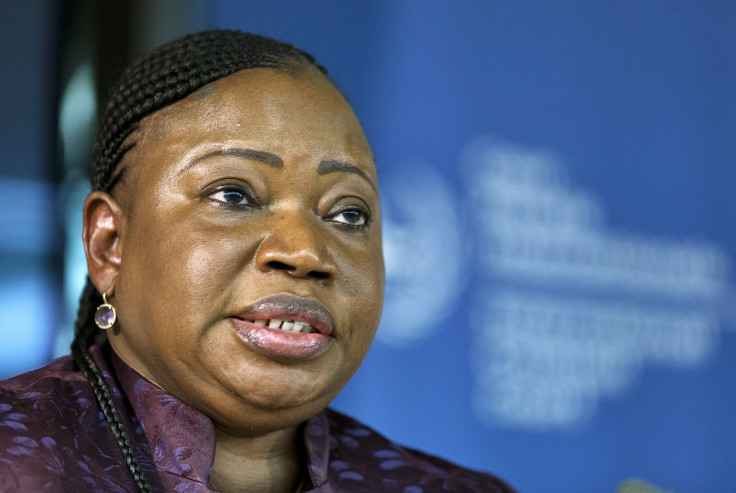International Criminal Court Hails Transfer Of LRA Commander: Ongwen Capture Marks Step In Ending Group's 'Reign Of Terror'

The transfer of the Lord’s Resistance Army’s top Ugandan commander to the International Criminal Court represented a major step in ending the militant group’s “reign of terror,” said the court’s chief prosecutor, Fatou Bensouda, in a statement on Wednesday. Dominic Ongwen is set to face war crimes charges at the tribunal following his arrival to the Hague this week for his alleged role in the murder, enslavement and pillaging committed by the group.
Ongwen was one of the highest-ranking members of the Lord’s Resistance Army, serving as a senior aide to notorious warlord Joseph Kony, who remains at large. The group is thought to be responsible for widespread atrocities against civilians in Africa’s Great Lakes region, including the killing of tens of thousands of people, as well as abductions, mutilations and sex slavery.
“For more than a quarter of a century, the LRA under Joseph Kony and his high command, that includes Ongwen, have terrorised the people of Northern Uganda and neighbouring countries,” said Bensouda. “His transfer to the Court’s custody sends a firm and unequivocal message that no matter how long it will take, the Office of the Prosecutor will not stop until the perpetrators of the most serious crimes of concern to the international community are prosecuted and face justice for their heinous crimes.”
The LRA first emerged in northern Uganda in 1986 as a rebel movement against the government of Ugandan President Yoweri Museveni but shifted its focus across the region to areas including the north-eastern Democratic Republic of Congo, southern Sudan and eventually south-eastern Central African Republic, where it began to sow terror, said Agence France-Presse. Ongwen is accused of conducting the group’s violence in northern Uganda during the early 2000s, when thousands of people were murdered and kidnapped into sex slavery.
The rebel commander was arrested in the Central African Republic earlier this month after being wanted by U.S. and African forces since 2011. His trial marks the first time that a member of the LRA has faced international justice, according to the BBC. His transfer to the Hague was welcomed by the U.S., which had offered a $5 million reward for information leading to his arrest. The African regional efforts against the LRA, and particularly the hunt to capture Kony, has received strong American support, including the deployment of U.S. special forces to assist in logistical and intelligence operations against the group, reported the New York Times.
Ongwen’s status as a former child soldier may pose some legal and ethical dilemmas for the court, which is facing the challenge of trying Ongwen on top of its already significant caseload in Africa. The court has been heavily criticized for its disproportionate focus on the continent while Uganda, which helped facilitate Ongwen’s transfer, recently called for African nations to quit the court, accusing it of being a “tool to target” Africa.
© Copyright IBTimes 2025. All rights reserved.






















